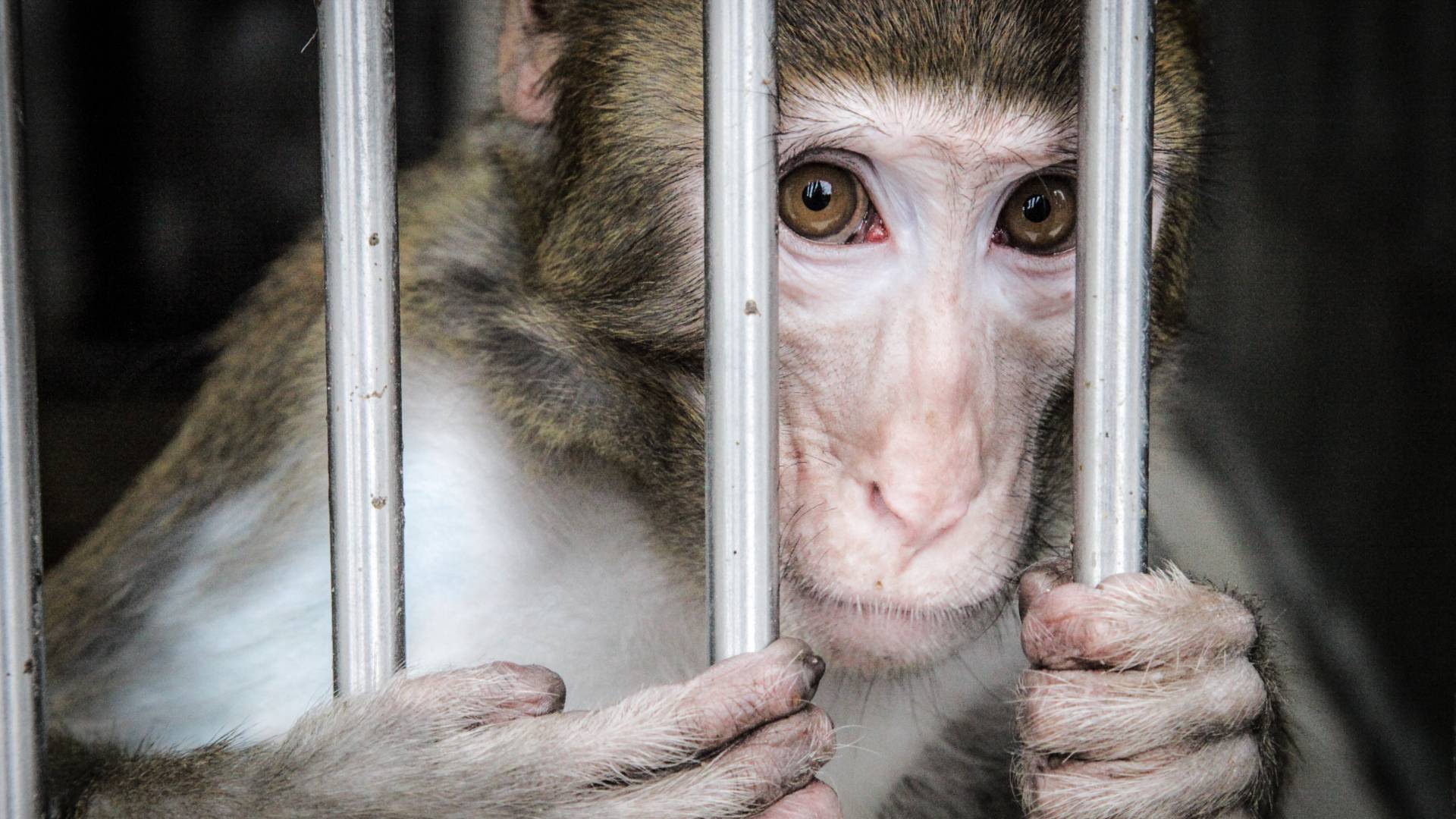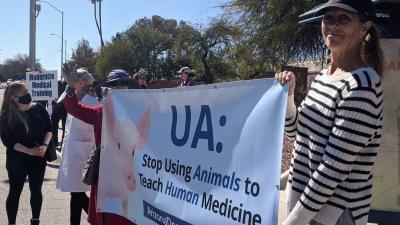We Don’t Need More Monkeys, We Need a New Strategy to Test Vaccines

The New York Times recently reported that research monkeys are “in short supply,” arguing that the U.S. needs to create a “strategic monkey reserve” to adequately respond to new strains of SARS-CoV-2 and future pandemics.
Proponents of the use of monkeys in research labs have claimed that these intelligent animals are essential for health research, citing their genetic similarities to humans. But that all sounds remarkably similar to what experimenters said about chimpanzees.
In the 1980s and ‘90s, misguided efforts to cure diseases like HIV and hepatitis C gave rise to a massive chimpanzee breeding program. That led to the warehousing of thousands of chimpanzees in deplorable conditions; the unconscionable separation of newborn chimpanzees from their mothers, who were then reimpregnated; and the routine exposure of these animals to numerous pathogens, biopsies, and anesthesia, via “knock downs” using high-powered tranquilizer guns. All that horror only resulted in a massive scientific failure.
Of the more than 85 HIV vaccines that demonstrated positive outcomes in chimpanzees, not one was effective in human trials. Likewise, hepatitis C develops very differently in humans than chimpanzees, who are rarely chronically infected by the disease. These failures were front and center when the Institute of Medicine announced in 2011 that there was not a single area of human health research for which chimpanzees were necessary—even though we share about 99% of our DNA with them. Soon thereafter, the National Institutes of Health (NIH) halted funding for chimpanzee experiments.
Today, Old World monkeys such as macaques are the nonhuman primate of choice in vaccine research, and once again the argument to use them hinges on their genetic similarity to humans. But the use of these highly social creatures in research is no less ethically dubious, and their use in vaccine testing is costly, time-consuming, and has its own long history of failing to improve human health.
In fact, NIH researchers concluded that research on previous coronaviruses, SARS and MERS, had been largely unsuccessful “in part because of difficulties in developing animal models that provide consistent and reproducible results.” The evidence is clear: Animal-based research continually fails to replicate human disease and continually fails produce safe and effective therapeutics.
Instead of monkeys and other animals, more ethical, effective, and sustainable human-based methods are the future. Because they use human cells and tissues, these approaches can better replicate the pathology of human diseases, including COVID-19. Physicians Committee scientists and other researchers are part of an effort to organize data about COVID-19 to make it easier to connect findings from human clinical and cell and tissue studies. Other examples of powerful human-based COVID-19 research include studies that have used donated human tissue, human brain organoids, human lung airway chips, human stem cell-derived cardiac tissue, human intestinal organoids, and mini human lungs in a dish. Learning from these human-relevant findings and supporting much more of this kind of research is the only way we will solve this crisis and better prepare for future pandemics.
Since the pandemic began, the Physicians Committee has been highlighting the ineffectiveness and unsustainability of pandemic animal research and pushing for the NIH to support human-based research for COVID-19, not more animals—and certainly not the establishment of a “strategic monkey reserve.” We will continue to fight for human-relevant research and testing that saves human and animal lives.








